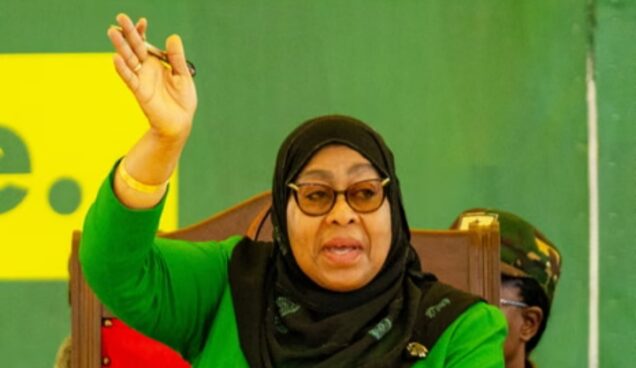Tanzanian President Samia Suluhu Hassan has been officially declared the winner of the country’s presidential election, securing an overwhelming 98 percent of the total votes cast.
The announcement was made on Saturday morning by Jacobs Mwambegele, the chairperson of the national electoral commission.
He confirmed that Hassan, who contested under the Chama Cha Mapinduzi (CCM) party, won across almost all voting regions, dominating the polls.
The election, held on Wednesday, recorded the participation of over 32 million registered voters.
However, several international observers have expressed concern over the lack of transparency, reports of voting irregularities, and violence that reportedly led to the death of more than 500 people, leaving many others injured.
Opposition participation in the election was extremely limited.
The main opposition party, Chadema, boycotted the election after its leader, Tundu Lissu, was arrested and charged with treason for demanding electoral reforms.
Another major opposition figure, Luhaga Mpina of the Alliance for Change and Transparency (ACT-Wazalendo) party, was disqualified by the electoral body, further reducing the level of competition in the race.
This election marks Hassan’s first presidential contest since she assumed office in 2021, following the death of former President John Magufuli.
READ ALSO: Guinea Bissau foils coup attempt, arrests top military officers
Hassan, who previously served as vice-president, became the country’s first female head of state, earning praise for her calm and diplomatic style of governance, which contrasted sharply with Magufuli’s tough and controversial leadership.
In her early years in power, President Hassan was applauded for restoring international confidence in Tanzania.
She worked to rebuild relationships with foreign donors, attract investors, and strengthen ties with key global institutions such as the International Monetary Fund (IMF) and the World Bank.
Her administration also reopened doors for international cooperation and foreign trade that had declined under the previous regime.
However, critics argue that her government has not done enough to promote political freedom and accountability. Reports of harassment, arrests, and abductions of opposition members have raised questions about her commitment to democratic reforms. Despite these concerns, Hassan remains a popular figure among many Tanzanians who credit her with bringing stability, economic recovery, and international respect to the East African nation.


